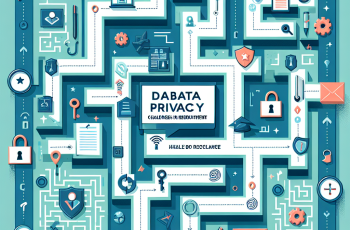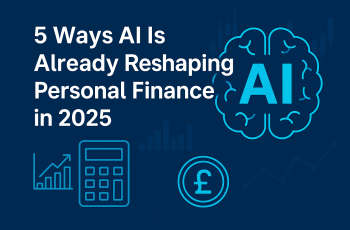AI Startups: Transforming the Recruitment Landscape in 2025
Estimated reading time: 7 minutes
- AI startups are reshaping recruitment processes, making them more innovative and efficient.
- Access to high-quality data and embedding AI services into workflows are crucial for success.
- Agility and focused innovation give AI startups an edge over larger enterprises.
- HR professionals can leverage insights from AI startups to enhance their recruitment strategies.
- The Evolution of AI Startups
- Why AI Startups Are Gaining Ground
- Competitive Advantages Over Large Enterprises
- Industry and Market Trends
- Notable Examples in AI Recruitment
- Challenges and Considerations for AI Startups
- Practical Takeaways for Recruiters and HR Professionals
- Conclusion
- FAQ
The Evolution of AI Startups
AI startups are at the forefront of technological innovation, fundamentally reshaping industries and entrepreneurship. These companies, often termed “AI-native,” build their core products on artificial intelligence technologies from scratch. This allows them to launch, iterate, and scale at an unprecedented pace compared to traditional startups, which are often shackled by legacy systems and processes (World Economic Forum).
The emergence of AI startups signifies a paradigm shift. Businesses are now able to operate with smaller, more adaptive teams that leverage automation instead of traditional headcount growth. This change is influencing how we perceive entrepreneurship, prompting policymakers to rethink measurements of entrepreneurial success and job creation.
Why AI Startups Are Gaining Ground
The competitive landscape for businesses is shifting as AI startups bring unique advantages to the table. Below are some of the key factors enabling these startups to thrive:
- Data Moats: At the core of successful AI startups lies the ability to access and harness high-quality, proprietary datasets. These resources empower startups to create more accurate and differentiated AI models, offering them a competitive edge in the recruitment market (Madrona Venture Group).
- Embedded AI Services: Successful AI solutions integrate deeply into existing workflows. This embedded approach ensures these services are less likely to be overlooked, generating greater value and encouraging ongoing customer engagement. For recruiters, this means tools that can seamlessly enhance sourcing and candidate management processes.
- Distribution Strategy: AI startups that forge early partnerships and smart distribution channels can accelerate market adoption. In recruitment, leveraging these partnerships can help businesses tap into broader talent pools more effectively.
- Talent Density: Attracting top-tier AI and product talent is crucial for AI startups. These companies often foster a culture of innovation and agility, allowing them to produce cutting-edge solutions rapidly. This aspect is vital for recruitment startups aiming to improve the hiring process with AI-driven tools.
- Clear, Measurable Impact: To gain traction and funding, AI startups must demonstrate tangible business value. For recruiters, this means focusing on tools and services that clearly show how they can save costs, enhance efficiency, and yield better hiring outcomes.
Competitive Advantages Over Large Enterprises
AI startups possess intrinsic advantages compared to larger enterprises when it comes to agility and innovation:
- Agility and Speed: One of the standout attributes of startups is their ability to pivot and adapt rapidly. While larger enterprises often grapple with bureaucratic processes, startups can quickly experiment with new ideas and innovations. This speed allows them to explore novel applications of AI in recruitment before industry standards solidify (Stifel).
- Focused Innovation: Startups specialize in creating AI-first products tailored to address specific market needs, rather than modifying existing systems. In recruitment, this translates to tools designed explicitly for the demands of talent acquisition, resulting in more effective outcomes.
- Niche Market Exploitation: Large enterprises frequently pursue broad solutions, which leaves gaps in specialized domains such as enterprise automation and focused recruitment services. AI startups tend to innovate in these niches, addressing specific, unmet needs in recruitment (Stifel).
Industry and Market Trends
As AI technology evolves, certain trends have emerged that significantly impact AI startups:
- AI-Native Startups: These firms are reshaping how companies achieve product-market fit and scale. By depending on automation rather than proportional headcount growth, they are redefining the future of work and influencing traditional hiring practices (World Economic Forum).
- Global Geographic Reach: Innovation in AI startups is not confined to specific locations; it is a global phenomenon. Major innovation hubs continue to emerge, facilitating a rich exchange of ideas and strategies that affect recruitment internationally (World Economic Forum).
- Investment Opportunities and Risks: Rapid growth often attracts significant venture capital. However, this accelerated scaling can introduce risks for investors, as many AI startups may not have tightly validated their product-market fit or business models when they seek funding (TechCrunch).
Notable Examples in AI Recruitment
Several AI startups are making waves in the recruitment space, gaining attention for their innovative approaches. Some notable companies have been highlighted in prominent conferences, focusing on areas such as enterprise automation and advanced analytics. These startups exemplify how AI can enhance decision-making processes during hiring and talent management.
For instance, companies focusing on decision intelligence applications are streamlining candidate assessments and optimizing hiring workflows, ultimately improving the talent acquisition process. They showcase the increasing integration of AI in HR tech, providing tools that enhance recruitment strategies and results.
Challenges and Considerations for AI Startups
Despite their advantages, AI startups face distinct challenges:
- Sustainable Differentiation: As the market for AI technology becomes saturated, startups must maintain sustainable competitive advantages. This is particularly true regarding access to proprietary data and high-caliber technical talent (Madrona Venture Group).
- Balancing Speed and Practicality: While the ability to move quickly is advantageous, AI startups must also ensure their solutions address actual business needs and demonstrate real-world value. Failing to do so might lead them into the “demo trap,” where they showcase impressive technology without widespread adoption (Stifel).
- Changing Workforce Dynamics: The shift towards smaller team sizes in AI startups challenges traditional views of job creation in the entrepreneurial landscape. HR leaders must adapt to this changing dynamic, recognizing the impact on workforce planning and talent acquisition strategies (World Economic Forum).
Practical Takeaways for Recruiters and HR Professionals
As AI startups continue to redefine recruitment, HR professionals can leverage insights from these trends to enhance their own strategies:
- Invest in AI-Driven Tools: Look for AI solutions that deeply integrate into your existing recruitment workflows, focusing on embedded services that improve hiring outcomes.
- Focus on Data Quality: Ensure that the data you are using for recruitment processes is high-quality and proprietary. This will enable you to create more accurate models for candidate assessment.
- Embrace Agility: Adopt an agile approach to recruitment. Be willing to experiment with new solutions and technologies that can optimize hiring processes.
- Consider Niche Markets: Explore specialized recruitment services that address specific needs rather than broadly applicable solutions. This will allow you to stand out in your hiring strategy.
- Continuous Learning: Stay informed about evolving trends in AI recruitment technologies. Attend conferences and workshops to understand emerging tools and practices in the industry.
Conclusion
AI startups in 2025 are driving a new wave of innovation in recruitment, leveraging unique data capabilities, operating with agility, and focusing on targeted solutions. Their ability to deliver significant business value in a fast-paced environment makes them formidable players in the evolving job market. As businesses navigate these changes, harnessing the power of AI can unlock new potential in recruitment strategies, positioning organizations for future growth.
FAQ
- What are AI startups? AI startups are companies that develop their products primarily based on artificial intelligence technology, allowing for faster innovation and adaptation.
- How do AI startups influence recruitment? They introduce innovative tools that streamline processes, enhance decision-making, and improve overall hiring outcomes.
- What challenges do AI startups face in recruitment? They must navigate competitive differentiation, proving real-world value, and adapting to changing workforce dynamics.
- What should HR professionals consider when adopting AI tools? Focus on integrating high-quality data, fostering agility in processes, and staying attuned to the latest industry trends.

